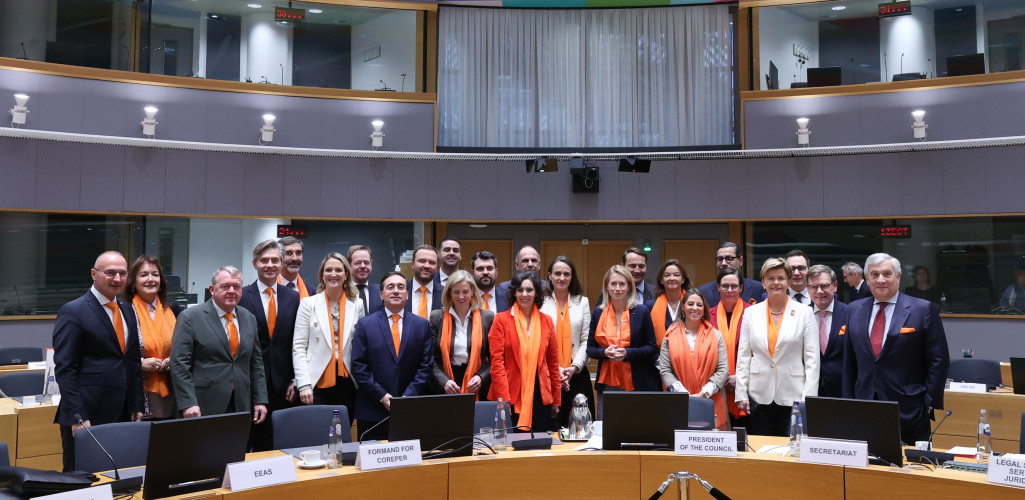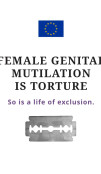International Day for the Elimination of Violence against Women

HR/VP Kaja Kallas and Foreign Ministers mark “16 Days of Activism against Gender-Based Violence” at the Foreign Affairs Council.
Support within the EU and beyond
Violence against women and girls is one of the most systematic and common human rights violations globally. EU countries are no exception. Sadly, one in three women has experienced physical or sexual violence, mostly perpetrated by intimate partners. Eliminating such violence globally requires intensive efforts.
The EU and its Member States work together to prevent and combat violence against women and girls, protect victims and prosecute perpetrators. The EU protects women and children from gender-based and domestic violence through legislation and practical measures. 1 October 2023 marked the entry into force of the Council of Europe Convention on Preventing and Combating Violence against Women and Domestic Violence, making the European Union the 38th Party to the Convention. With the Directive (EU) 2024/1385 of the European Parliament and of the Council of 14 May 2024 on combating violence against women and domestic violence, the European Union now has the first ever law to effectively fight violence against women and domestic violence.
The EU is also working towards the adoption of a common EU helpline number for victims of violence against women which will redirect users to the appropriate service.
In 2025, as the world marks the 30th anniversary of the Beijing Declaration and Platform for Action, the annual UNiTE campaign to end violence against women, focuses on one of the fastest-growing forms of violence – digital violence against all women and girls.
This page is dedicated to providing useful information and trusted online resources, apps, and initiatives to support victims and survivors of violence, and to combat this global issue, along with inspiring examples of worldwide activism and solidarity.
Digital and technology-facilitated violence disproportionately affects women in public life (journalists, politicians, activists), young women, girls and people who face intersecting forms of discrimination, including those from racial or ethnic minorities, LGBTIQ+ communities and persons with disabilities.
The EU’s external action, including in the context of Ukraine, the Western Balkans, the Southern Neighbourhood and beyond, integrates digital safety and women’s empowerment into security, governance and reconstruction efforts. These efforts contribute directly to EU foreign policy priorities: defending democracy, countering disinformation and promoting gender equality as core elements of peace and security.
On the International Day for the Elimination of Violence against Women, watch the video message of the Secretary-General of the EEAS Belén Martinez Carbonell and Ambassador for Equality Aude Maio-Coliche together with other colleagues.
Read more on the International Day for the Elimination of Violence against Women - www.eeas.europa.eu/eeas/global-hub-victims-violence_en



